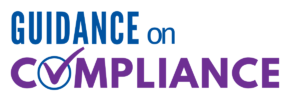This article is the third in a multi-part series discussing the concepts of organizational intelligence and their impact on healthcare providers. You can read Part 1 here or Part 2 here.
How your organization receives, processes, and acts on information is at the heart of understanding your Organizational Intelligence. Loop Learning is an excellent model that can help you quickly identify at what level your business is operating – and how to help it evolve to higher levels of thinking.
There’s an adage that states, “when your only tool is a hammer, every problem looks like a nail”. Single Loop Learning is this concept in practice.
Single Loop Learning describes the process we go through when our objective is to fix a problem. We try a method to fix it. If it doesn’t work, we adjust our tactic. Through this “trial and error” style of learning, we work towards a solution. In short, we use the hammer differently, perhaps softer, or from a different angle.
Double Loop Learning is an evolution of Single Loop Learning. Rather than just trying to solve a problem, Double Loop Learning asks why the problem even exists. If all I have is a hammer, do I need to design another tool? Or is the person wielding the hammer even the right one for the job?
Building on this is Triple Loop Learning. Here, we find not only an analysis of the problem at hand, and the path that lead us to that problem, but also if we should even be trying to fix the problem in the first place! Is it really a “problem” or are we failing to see the bigger picture and adapt appropriately.
Organizational Intelligence aims to break us out of our routine of Single and Double Loop learning, raising our thinking to the highest levels so that we can make organization wide improvements in a way that fits with internal culture and values.
Let’s say that maintenance at your facility has a goal of completing all work requests within seven days. While this mostly gets accomplished, your maintenance manager notes that it sometimes takes eight to ten days to fix HVAC issues. With only one HVAC person on staff, it is easy to see why this takes longer. To immediately remedy this issue, the maintenance manager himself starts to respond to HVAC calls as a backup. Here, the manager demonstrated single loop learning. He found a tactic to immediately solve the problem.
But, this manager is very smart. He knows that responding to HVAC calls himself isn’t a permanent solution. To remedy this issue, he might hire an additional person or train an existing staff member to assist. Single Loop Learning has turned into Double Loop Learning as the manager realized that he needs to not only solve the immediate problem with his response time today, but also being short staffed in the future.
Triple Loop Learning takes this scenario one step further. Is fixing an HVAC problem within seven days really the best metric of success? If you are operating in a climate where temperatures can be very warm or cold, then you don’t want the HVAC system down for even a day, let alone a week! What other solutions could be brought to the table? The maintenance manager takes a step back and thinks through this problem. For 80% of his time, the HVAC tech can respond to calls quickly, and without a problem. It is only when extreme temperature swings occur that there’s an issue. Perhaps a better solution is to look at outside contracting help to meet demands during peak periods. Or could technology play a role, with monitoring devices installed on the houses to help predict HVAC issues before they happen?
The maintenance manager has moved from “operational” thinking to more strategic problem solving and demonstrated Triple Loop Learning. He’s recognized that the organization itself might need to take some steps to evolve to provide better service.
Does your organization encourage front line employees, supervisors, managers, and directors to explore multi-loop learning? So often we enter “fire-fighter” mode, wherein we just tackle the problem in front of us, instead of asking bigger questions. The QAPI process is an evolution of this type of institutional information transmission. But, the principles of QAPI can be applied across an organization, not just in a care setting – and it all starts with loop learning.
The next part of this series will discuss the ignorance / intelligence spectrum and how providers can avoid intelligence pitfalls.
LW Consulting, Inc. (LWCI) offers a comprehensive range of services that can assist your organization in maintaining compliance, identifying trends, providing education and training, or conducting documentation and coding audits. For more information, contact LWCI to connect with one of our experts!


